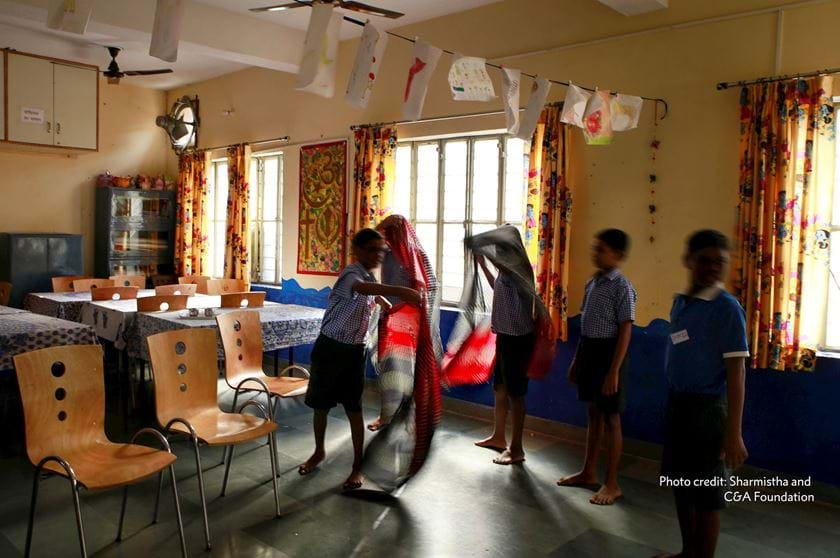Protecting children: The story of Ajay
Ajay is from Bihar, one of the poorest districts in India.
When he was 10 years old, a man turned up at Ajay’s family home with what seemed like a golden opportunity. The man suggested to the family that they could increase their income by allowing Ajay to travel with him to take up work in Jaipur. He told them that several children from the village were already making money there and sending back 2,000 INR (c.£22) to their families every month. Ajay’s family agreed.
The reality in Jaipur was harsh. Ajay was taken to a house and put to work alongside many other children making bangles in a small, dingy room. Locked in, day and night, all the children were kept crouched on the floor and forced to work for hours on end. Their fingers were constantly tensed over the fine work, and in the dim light they had to squint to complete their tasks.
Within hours of his arrival, the workshop master became sadistic and violent: if Ajay showed signs of tiredness, he was hit with an iron chain. Ajay was given food just once a day and only allowed to eat the meal set out in front of him when every last piece of work was done.
When the anti-trafficking rescue team burst into the workshop and found Ajay, he was malnourished, anxious and in physical pain. They took him to the safety of a sheltered home. In this safe space, he has had counselling sessions, classes in English, Maths and Hindi, and arts therapy. Now, at last, Ajay has a chance to experience childhood again. He is thriving and as soon as the legal procedures have been finalised, Ajay will be able to return to his family.

The British Asian Trust runs its Anti-trafficking Programme to protect victims of human trafficking from forced labour and sexual exploitation. We are working with businesses to lower the demand for child labour and encourage them to choose non-exploitative labour. We do so in partnership with local organisations and with funding from the John Lewis Foundation.
Names and pictures have been changed.
